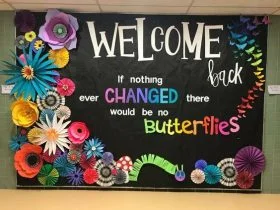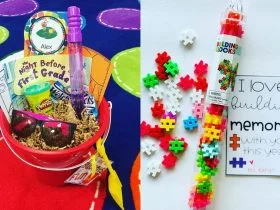As students climb the threshold of their future, career planning becomes an indispensable part of their journey. It’s not just about choosing a job; it’s about weaving the fabric of their dreams and aspirations into a fulfilling and sustainable career. Here’s how students can set goals and steer through the myriad of pathways to sculpt a future that resonates with their ambitions and talents.
Reader's Roadmap
Understanding Yourself
The foundation of career planning is a deep understanding of oneself. Students must take time to reflect on what truly ignites their passion. What subjects captivate your attention? When do you feel most fulfilled? Self-assessment tools and career tests can offer insights, but the most valuable information comes from personal reflection and experiences. Through internships, volunteering, and part-time jobs, students can garner a taste of various fields, identifying what brings them excitement and a sense of purpose. Recognizing your strengths, weaknesses, and interests is the first stride towards a goal that promises success, happiness, and personal growth. If you, as a student, know that writing ability if not one of your strengths, you can pay for essays online. Research the best writing providers to find the academic help you need.
Researching Career Options
Armed with self-knowledge, the next step is exploring the vast landscape of career options. The internet is a goldmine of information, with resources like the Occupational Outlook Handbook providing comprehensive career guides. However, one must look beyond job titles and delve into the daily realities of these roles. Talk to professionals in the field, attend career fairs, and engage with alumni networks to gain candid insights into various professions. Understanding industry trends, required skill sets, and long-term prospects is essential to making an informed decision that aligns with personal goals and market realities.
Setting Smart Goals
Once a direction is chosen, setting SMART (Specific, Measurable, Achievable, Relevant, and Time-bound) goals is critical. Instead of vague aspirations, students should outline concrete steps towards their careers. For instance, if you aim to become a software engineer, your goals might include learning a programming language by the end of the semester or contributing to an open-source project by junior year. If you ever need help with your school essays while you study programming, get art, science, literature and cultural essay examples online. SMART goals provide clarity and a timeline, making achieving a long-term vision more manageable and less intimidating.
Gaining Experience and Building a Network
Practical experience is invaluable; internships or part-time jobs in your chosen field can provide a glimpse into your future career while building your resume. Equally important is networking; it’s not merely a buzzword but a powerful tool in career planning. Start building relationships with peers, mentors, and professionals. Attend industry conferences, join professional associations, and create a LinkedIn profile to connect with industry leaders. This is especially important if you want to work in an important field like aviation. This is a great post to read if that is indeed your goal. These relationships can provide mentorship advice and potentially lead to job opportunities.
Creating a Roadmap
With goals in hand, the next stage is crafting a detailed action plan – a roadmap to success. This should outline the education and skills required for your chosen career and the steps to acquire them. Plan your academic journey accordingly if your field requires advanced degrees or certifications. Remember, the roadmap is not set in stone; it’s a flexible guide that adapts as you grow and industry demands evolve. Regularly revisiting and adjusting your plan ensures you stay aligned with your objectives and responsive to opportunities.
Embracing Flexibility and Lifelong Learning
The modern job market is dynamic, with career paths more fluid than ever before. Students should embrace this flexibility, remaining open to new experiences and ready to pivot when necessary. Lifelong learning is part of this adaptability; continuing education, whether through formal degrees or self-directed learning, ensures your skills remain relevant and competitive. Embrace the learning journey as an ongoing process, and you’ll find that your career path offers endless development opportunities.
Conclusion
Career planning for students is not just a process but a journey of self-discovery and strategic action. Students can confidently navigate their future by understanding themselves, researching options, setting SMART goals, creating a roadmap, gaining experience, networking, and embracing flexibility and lifelong learning. The ultimate career plan is one that brings personal fulfillment, aligns with individual talents, and adapts to the changing tides of the job market. Set your sights high, plan meticulously, and pursue your goals with tenacity. The future is yours to shape.
Author: Sam Stahl
Sam Stahl merges his expertise in career counseling with his flair for writing to provide guidance for those at crossroads in their professional journey. His articles are roadmaps for individuals seeking clarity and direction, drawing from years of helping people shape their career paths. Sam’s insights are a compass for students and professionals, navigating them towards fulfilling their vocational potential.







Leave a Reply
View Comments